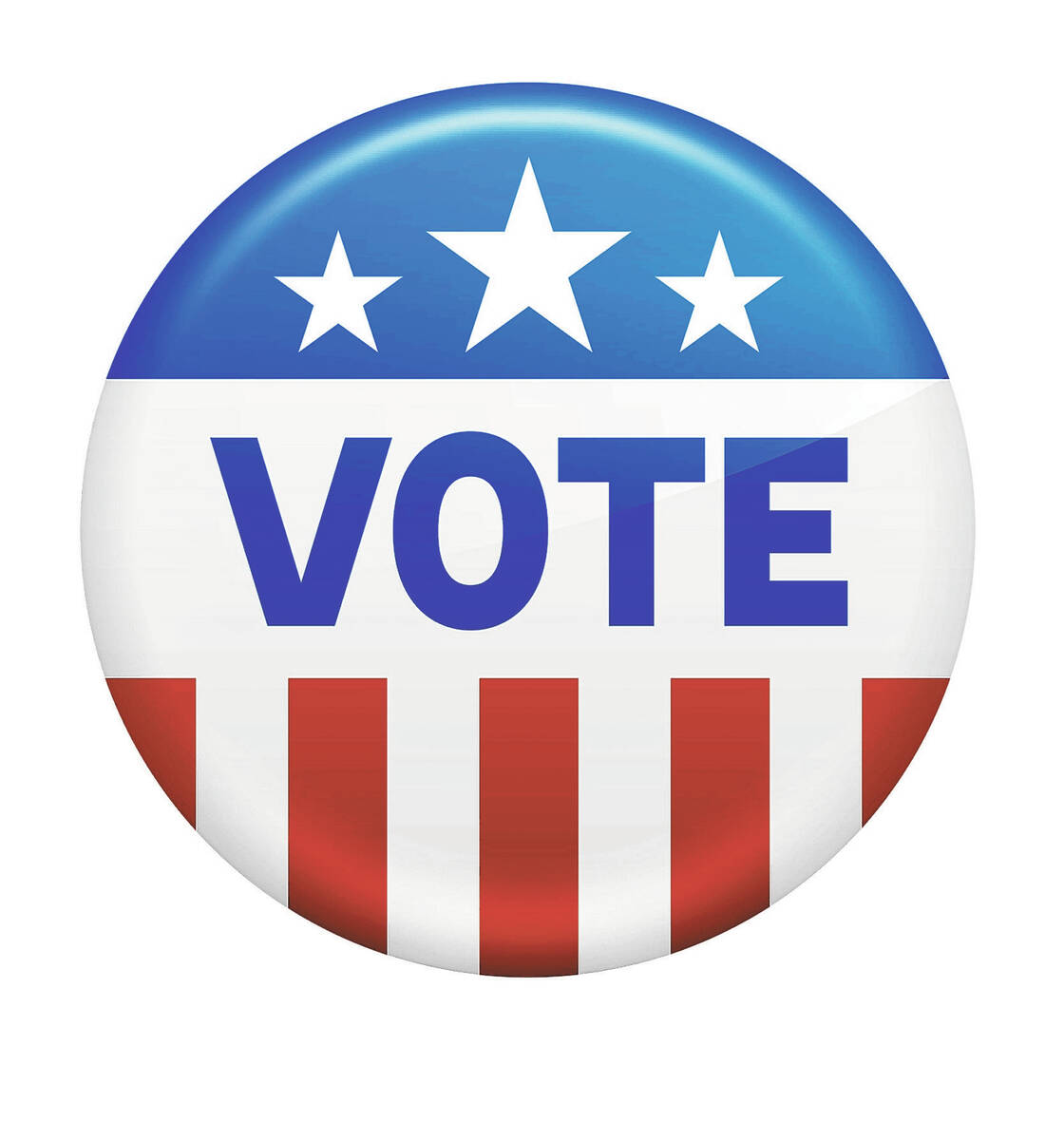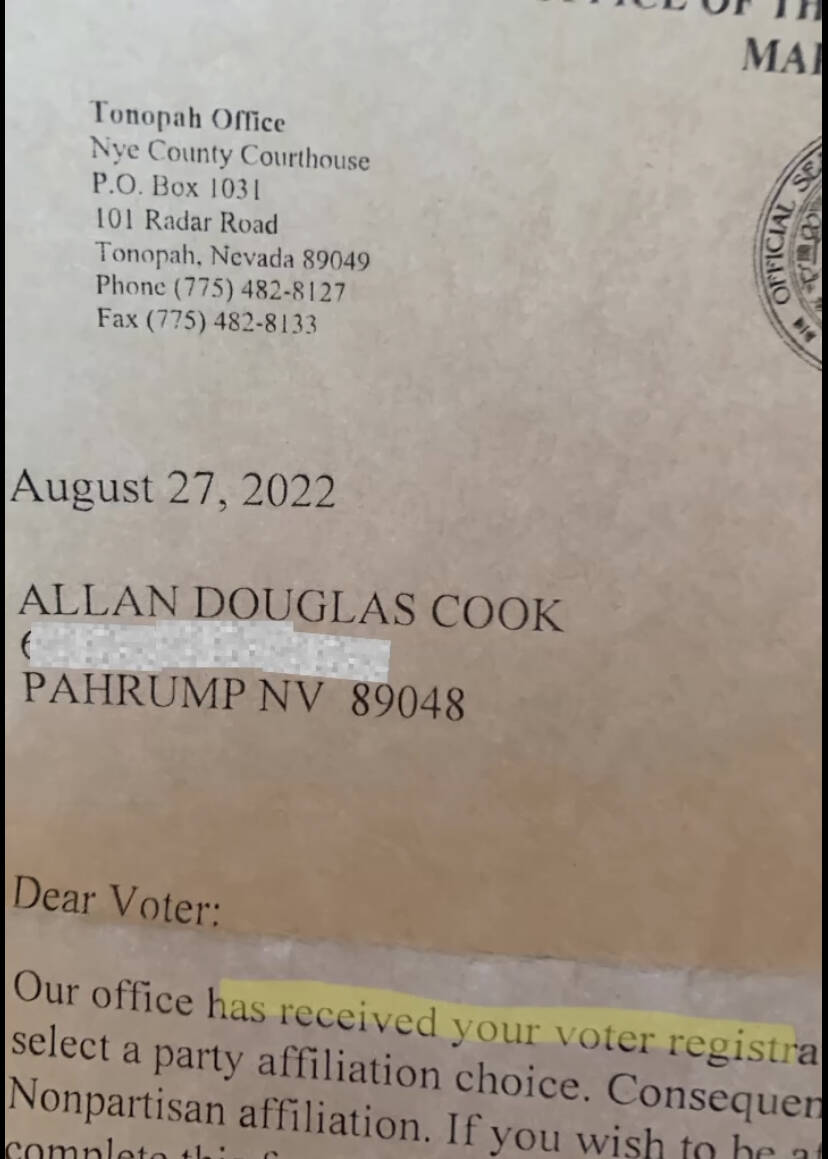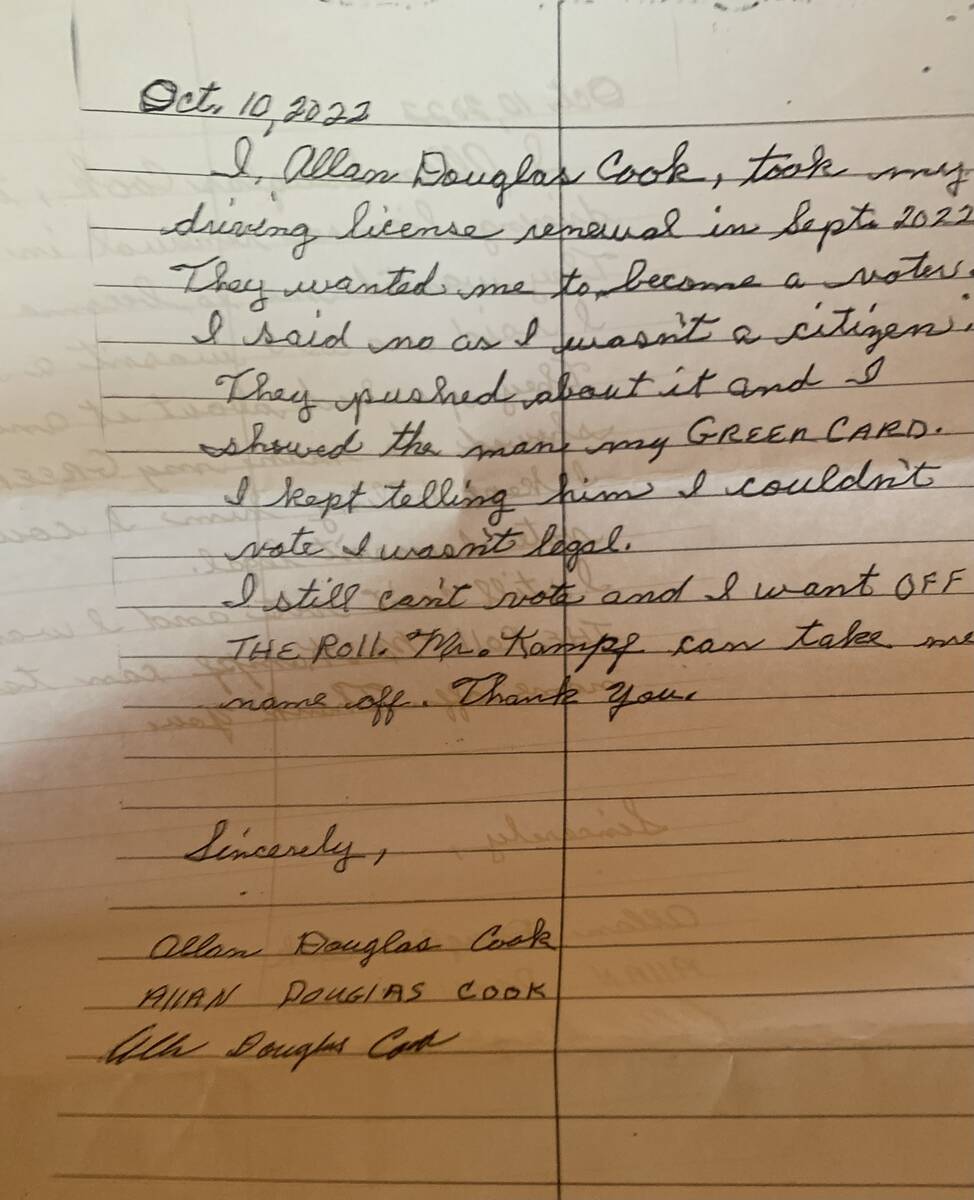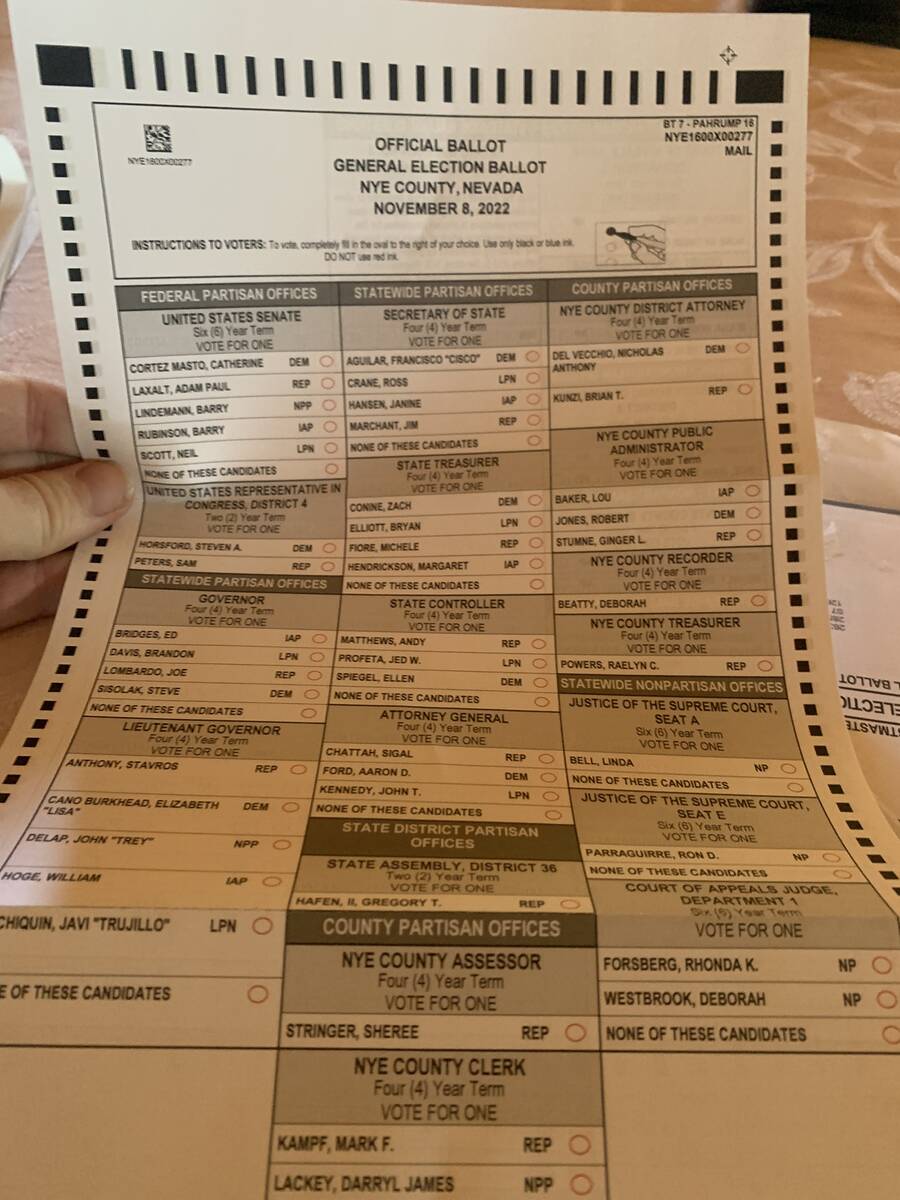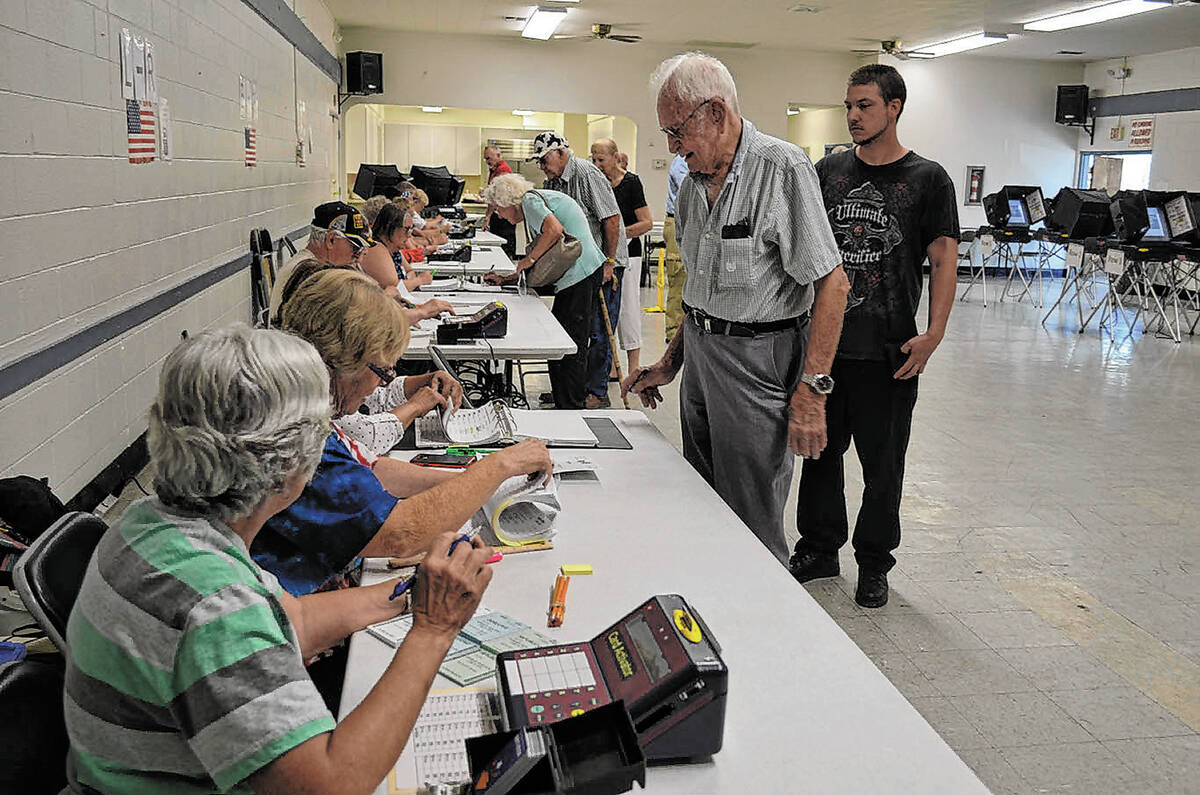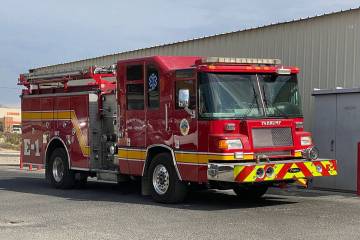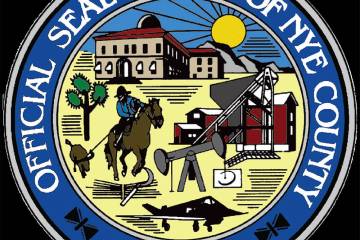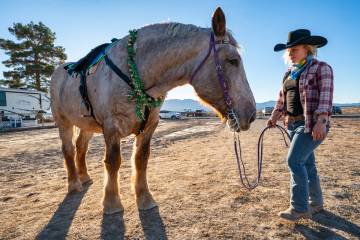Two green card holders in Nye County were wrongly issued mail-in ballots. Here’s how it may have happened.
A 77-year-old man who renewed his license at the Pahrump Department of Motor Vehicles in August claims he was mistakenly registered to vote and ultimately received a mail-in ballot to cast votes in Nye County’s upcoming general election, even though he reportedly informed local officials that he is a Canadian citizen and ineligible to participate in U.S. elections.
It’s the second confirmed case of an ineligible voter being registered in Nye County, according to interim Nye County Clerk Mark Kampf, who told the Times-Bonanza last week that another person had also self-reported the error. That person is believed to be a Japan national who is also a U.S. green-card holder but not a citizen.
Both were removed from the rolls before they could cast an illegal vote, Kampf said.
While there’s no evidence that such cases appear to be widespread, these errors underscore the pitfalls in our election system for how officials determine and verify the eligibility of new voters. The cases here also come at a time when a growing number in Nye County distrust the democratic process and are denying the accuracy and legitimacy of election results.
“I have concerns because these were self-reported,” Kampf said of the two who came forward about their wrongful registrations. “However, if this occurs the voter may not want to come forward if they are concerned about their green card status.”
That’s true for Allan Cook, the Canadian who has lived in Nye County as a permanent resident since before 1990. Cook, who lawfully owned and operated an ice company in Pahrump for years but has always maintained his foreign citizenship, said he initially hesitated to draw attention to the mistake because he didn’t want to jeopardize his permanent resident status in the U.S.
Although Cook declined to be photographed for this story, the Times-Bonanza authenticated the man’s claims after reporters met him in person and he produced his U.S.-issued green card, the Nevada voter ID card that was issued in his name, the mail-in ballot he received for the races in his local precinct, as well as the letter sent to him from the county clerk’s office that confirms his registration as a nonpartisan voter in Nye County.
Cook also produced a copy of a sworn affidavit that he submitted to the county clerk, in which he asked local election officials to remove him from the voter roll after self-declaring he is not – and never has been — eligible to vote in the U.S.
How it likely happened
Cook said a persistent worker at the motor vehicle bureau in Pahrump erroneously registered him to vote when he was there in August to renew his driver’s license, even though Cook reportedly showed the worker his permanent resident card and told him that he was ineligible to cast a ballot because he is Canadian.
“The worker said, ‘You want to vote don’t you?’” Cook recalled. “And I just said, ‘Mark that off because I can’t vote.’”
But somehow, he was registered in the system anyway.
Kampf confirmed that Cook was registered as a Nye County voter earlier this summer and that he also received the ballot in error, although it’s unclear what steps were taken to prevent the mistake.
“I cannot stop the DMV and who they register,” Kampf said. “If the DMV registers someone, we have to consider them without evidence to the contrary.”
Kampf believes the DMV should be responsible for checking legal documents to ensure registrants are eligible to vote. Those authenticating documents can include passports, Social Security cards, birth certificates, state-issued ID cards and licenses and utility bills, among others.
“We confirm addresses, and if correct, the voter is accepted,” Kampf said, of how the clerk’s office handles the registration of new voters that originate from external sources, such as the DMV.
When new voter applications are received at the clerk’s office, Kampf says workers check birth dates to ensure that applicants are at least 18 by Election Day. They also check for duplicates so no voter appears on rolls more than once.
“The state of Nevada confirms all additional information on the application,” Kampf said, noting an additional check-and-balance in the process.
Since the mistakes were discovered, there’s been finger-pointing for who is responsible.
“I am frustrated with the DMV registration process in general,” Kampf said.“Since this process was implemented, we need to send follow-up letters to all voters who did not select a political party. We find many where a party affiliation was not selected by the registrant, but the voter did not intend that outcome.”
A spokesperson for the Nevada DMV on Tuesday said they also were aware of Cook’s wrongful registration and regretted the error.
However, the spokesperson said there are safeguards built into the system which should have prevented his registration and maintains the DMV is not fully to blame.
In Cook’s case, “a series of human errors resulted in his voter registration data being submitted through the automatic-voter registration” system, according to James DeHaven, a public information officer for the state DMV.
“Records indicate Canadian citizen Allan Cook correctly identified himself as a non-citizen in an August application to renew his driver’s license,” DeHaven said. “He was mistakenly marked as a U.S. citizen by a DMV technician.”
But typically, at the end of a driver’s license transaction, DeHaven says the customer and the technicican are required to review a driver’s license confirmation sheet, which lists all of the license information, including the “check box” on citizenship.
That apparently did not happen, DeHaven said.
“In Mr. Cook’s case, the error was noted on this sheet but apparently neither Mr. Cook nor the technician took note of the fact that Mr. Cook signed the sheet attesting that all information on that sheet was correct,” he said.
Cook also could have opted-out of registration at that point, but DeHaven said he did not return the appropriate form to decline registration and was automatically enrolled in the system.
“This is a common problem,” DeHaven said. “The election laws require this form be filled out after the DMV transaction and away from the counter. Customers who do not complete it have no political party preference submitted with their registration application.”
DeHaven maintains that the DMV is only part of the Nevada Automatic Voter Registration system.
“The DMV does not have final discretion over which residents are ultimately added to the voting rolls,” DeHaven said. “In fact, the DMV is merely a ‘pass-through’ agency for voter registration.”
The voter registration process is a multi-layered one meant to weed out ineligible voters, he said, but most of the precautions are enforced by state and local election officials.
“State law clearly assigns the task of voter-vetting to county elections officials, who are responsible for reviewing applicant information transmitted by the DMV to determine whether the person is eligible to register to vote,” DeHaven said.
Those laws are designed specifically to ensure that DMV staff have “no discretion in determining whether someone is eligible to vote,” he added.
“That said, mistakes can happen,” DeHaven acnowledged. “However, it is very rare that all of the safeguards built into this process fail.”
As a precaution, potential voters should do their homework and know if they’re eligible to vote because they’re the ones who could be penalized for casting illegal ballots.
A series of mistakes
Since being wrongfully issued a voter card and mail-in ballot, Cook has been relentless to rectify the mistake.
Clara Cook, a U.S. citizen who has been married to Allan for years, said they informed the county clerk about the error in mid-September after her husband received notification that he’d been registered and later was sent a sample ballot in the mail ahead of the upcoming election.
The clerk made copies of the documents, she said, and told the Cooks that he’d follow up with the secretary of state’s office to report the incident. Allan also submitted a request in writing to the county clerk to be permanently purged from voter rolls.
“We thought everything was taken care of,” Clara said. “But next thing we know, he gets his voter card in the mail.”
Days after that, Allan received his official mail-in ballot, which invited him to mark his selections and return them before the deadline on Nov. 8 to be counted in more than a dozen national, state and local races.
“He was forced to register, in my opinion,” Clara said.
Allan doesn’t plan to vote – and said he never did – but the Cooks fear there could be similar cases of ineligible voters receiving mail-in ballots in Nye County and all across the country who fraudulently vote in numbers large enough to influence elections.
“I’m just tired of being told there are no illegal voters in Nevada,” Clara said. “When Trump said there was fraud, I agreed with him.”
Kampf, who has expressed his own doubts over the results of the 2020 general election, will be in charge of overseeing local elections in next month’s Nye County elections. He also remains the GOP candidate in the race against a nonpartisan challenger.
This election is the first time in the age of modern voting technology that Nye County will exclusively rely on paper ballots for both mail-in votes and those cast in-person at the polls.
County commissioners pushed for the voting changes in March, saying they’d help ensure accuracy and transparency in the democratic voting process.
There will also be a hand count of all votes conducted by citizen volunteers representing all political parties and non-partisan voters.
Election fraud
Following the 2020 election, the Nevada attorney general filed two counts of voter fraud against a 55-year-old Las Vegas man who allegedly voted twice – including once in his dead wife’s name.
The Republican pleaded guilty to voting with another person’s name and voting more than once in the same election – both of which are felonies that carried a possible prison term of up to four years, as well as a fine of $5,000.
Under the terms of his plea deal, the man was sentenced to a one-year term of informal probation. If he stays out of trouble, he will be permitted to withdraw his felony plea and enter a plea of guilty to the charge of Conspiracy to Commit Voting More Than Once at Same Election, a gross misdemeanor. He will be required to pay a $2,000 fine.
The defendant is set to return to court for a follow-up hearing next month.
“Though rare, voter fraud can undercut trust in our election system,” said Nevada Attorney General Aaron D. Ford in a statement after announcing the voter fraud charges in November of last year. “This particular case of voter fraud was particularly egregious because the offender continually spread inaccurate information about our elections despite being the source of fraud himself.”
The Heritage Foundation, a conservative Washington D.C.-based think tank that tracks voter fraud across the country, has documented eight convictions for election irregularities in Nevada since 2011.
Repeat experience
Clara Cook said it’s not the first time she’s encountered potential voting fraud.
Her former husband received a ballot years ago, she said, although he was ineligible to vote because he was a convicted felon.
Clara said she turned him in to election officials to prevent him from casting a vote because she takes voting seriously.
She’s voted in every election since turning 18, but said it’s time to overhaul how our elections operate.
“There needs to be a change in the system,” she said, adding that she’ll take all measures she can to ensure the error with her husband’s voting registration is resolved.
“I want to follow this as far as I can.” she said, adding that she’s even considered calling former president Donald Trump, who has infamously contested election results, to fight this battle if she has to.
Contact editor Brent Schanding at bschanding@pvtimes.com. Contact reporter Faye Burdzinski at fburdzinski@pvtimes.com.
Editor’s note: This story has been updated with new comments from the county clerk and a spokesperson from the Nevada Department of Motor Vehicles.


